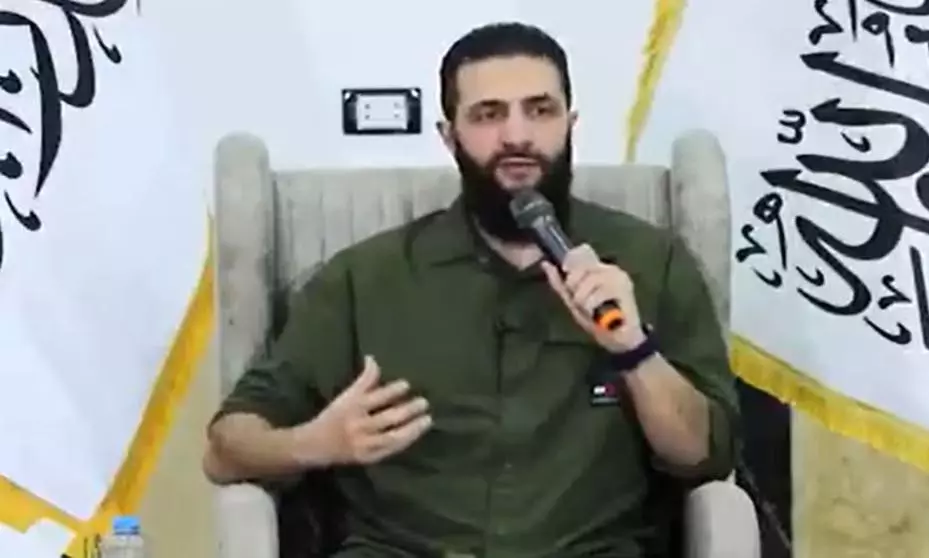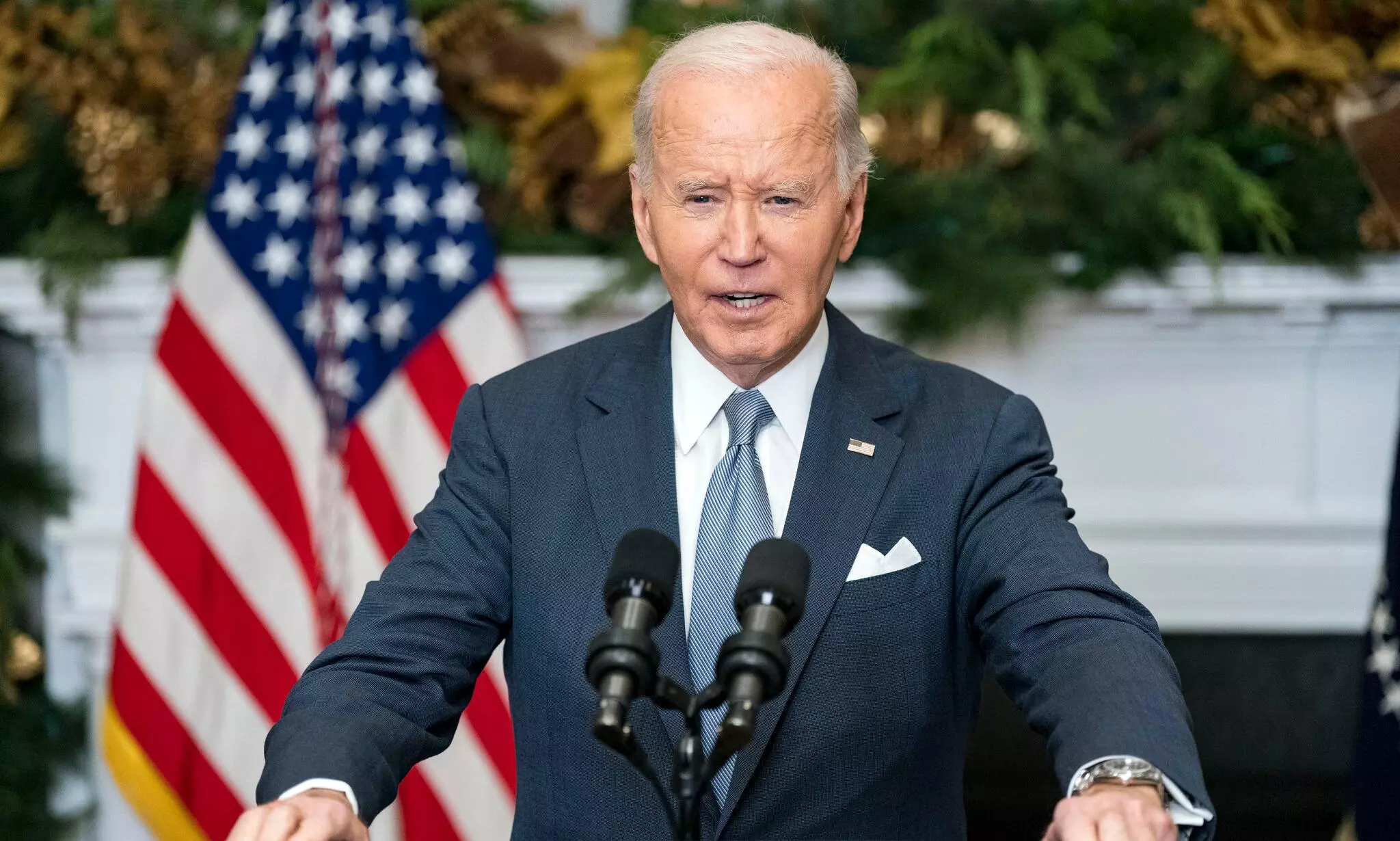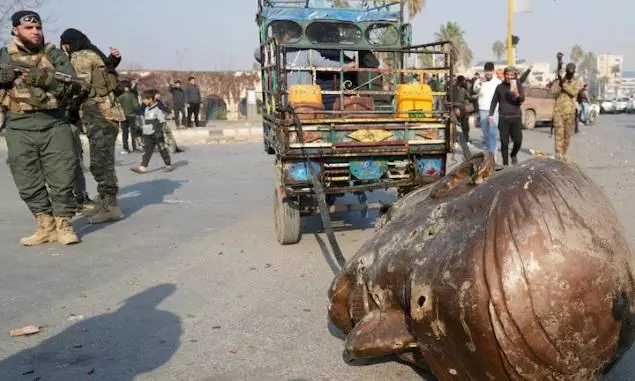
Abu Mohammed Al-Golani, the man to watch in Syria after Assad's exit
text_fieldsBeirut: Abu Mohammed Al-Golani, the militant leader whose stunning insurgency toppled Syria's President Bashar Assad, has spent years working to remake his public image, renouncing longtime ties to Al-Qaida and depicting himself as a champion of pluralism and tolerance. As he entered Damascus behind his victorious fighters on Sunday, he even dropped his nom de guerre and referred to himself with his real name, Ahmad al-Sharaa.
The extent of that transformation from the image drawn of him by sources more than world media as jihadi extremist to would-be state builder is now put to the test.
Insurgents control Damascus, Assad has fled into hiding, and for the first time after 50 years of his family's iron hand, it is an open question how Syria will be governed.
Syria is home to multiple ethnic and religious communities, often pitted against each other by Assad's state and years of war. Many of them fear the possibility that Sunni Islamist extremists will take over. The country is also fragmented among disparate armed factions, and foreign powers from Russia and Iran to the United States, Turkey and Israel all have their hands in the mix.
Hours after Damascus' capture, the 42-year-old Al-Sharaa made his first appearance in the city's landmark Umayyad Mosque, declaring Assad's fall “a victory for the Islamic nation.” A senior rebel commander, Anas Salkhadi, appeared on state TV to declare, “Our message to all the sects of Syria, is that we tell them that Syria is for everyone,” Al-Sharaa, who has been labelled a terrorist by the United States, and his insurgent force, Hayat Tahrirl-Sham, or HTS - now stand to be a major player.
For years, Al-Sharaa worked to consolidate power, while bottled up in the province of Idlib in Syria's northwest corner as Assad's Iranian- and Russian-backed rule over much of the country appeared solid.
He maneuvered among extremist organizations while eliminating competitors and former allies. He sought to polish the image of his de-facto “salvation government” that has been running Idlib to win over international governments and reassure Syria's religious and ethnic minorities. And he built ties with various tribes and other groups.
Along the way, he shed his garb as a hard-line Islamist guerrilla and put on suits for press interviews, talking of building state institutions and decentralizing power to reflect Syria's diversity.
“Syria deserves a governing system that is institutional, no one where a single ruler makes arbitrary decisions,” he said in an interview with CNN last week, offering the possibility HTS would eventually be dissolved after Assad falls.
“Don't judge by words, but by actions,” he said.
Al-Golani's beginnings in Iraq
Throughout his rise through extremist ranks, Al-Sharaa was only known by the nickname he adopted, Abu Mohammed Al-Golani. His ties to aA-Qaida stretch back to 2003, when he joined insurgents battling US troops in Iraq. The Syrian native was detained by the U.S. military but remained in Iraq. During that time, Al-Qaida usurped like-minded groups and formed the extremist Islamic State of Iraq, led by Abu Bakr al-Baghdadi.
In 2011, a popular uprising in Syria against Assad triggered a brutal government crackdown and led to all-out war. Al-Golani's prominence grew when Al-Baghdadi sent him to Syria to establish a branch of Al-Qaida called the Nusra Front. The United States labeled the new group as a terrorist organization. That designation still remains in place and the US government has put a USD 10 million bounty on him.
The Nusra Front and the Syrian conflict
As Syria's civil war intensified in 2013, so did Al-Golani's ambitions. He defied al-Baghdadi's calls to dissolve the Nusra Front and merge it with Al-Qaida's operation in Iraq, to form the Islamic State of Iraq and Syria, or ISIS.
Al-Golani nonetheless pledged his allegiance to Al-Qaida, which later disassociated itself from ISIS. The Nusra Front battled ISIS and eliminated much of its competition among the Syrian armed opposition to Assad.
In his first interview in 2014, Al-Golani kept his face covered, telling a reporter for Qatari network Al-Jazeera that he rejected political talks in Geneva to end the conflict. He said his goal was to see Syria ruled under Islamic law and made clear that there was no room for the country's Alawite, Shiite, Druze and Christian minorities.
Consolidating power and rebranding
In 2016, Al-Golani revealed his face to the public for the first time in a video message that announced his group was renaming itself Jabhat Fateh al-Sham -- the Syria Conquest Front -- and cutting its ties to al-Qaida.
“This new organisation has no affiliation to any external entity,” he said in the video, filmed wearing military garb and a turban.
The move paved the way for Al-Golani to assert full control over fracturing militant groups. A year later, his alliance rebranded again as Hayat Tahrir al-Sham -- meaning Organization for Liberating Syria -- as the groups merged, consolidating Al-Golani's power in northwest Syria's Idlib province.
HTS later clashed with independent Islamist militants who opposed the merger, further emboldening al-Golani and his group as the leading power in northwestern Syria, able to rule with an iron fist.
With his power consolidated, Al-Golani set in motion a transformation that few could have imagined. Replacing his military garb with shirt and trousers, he began calling for religious tolerance and pluralism.
He appealed to the Druze community in Idlib, which the Nusra Front had previously targeted, and visited the families of Kurds who were killed by Turkish-backed militias.
In 2021, he had his first interview with an American journalist on PBS. Wearing a blazer, with his short hair gelled back, the now more soft-spoken HTS leader said that his group posed no threat to the West and that sanctions imposed against it were unjust.
“Yes, we have criticized Western policies,” he said. “But to wage a war against the United States or Europe from Syria, that's not true. We didn't say we wanted to fight.”
(PTI sourced from AP with minimal edits here)


























